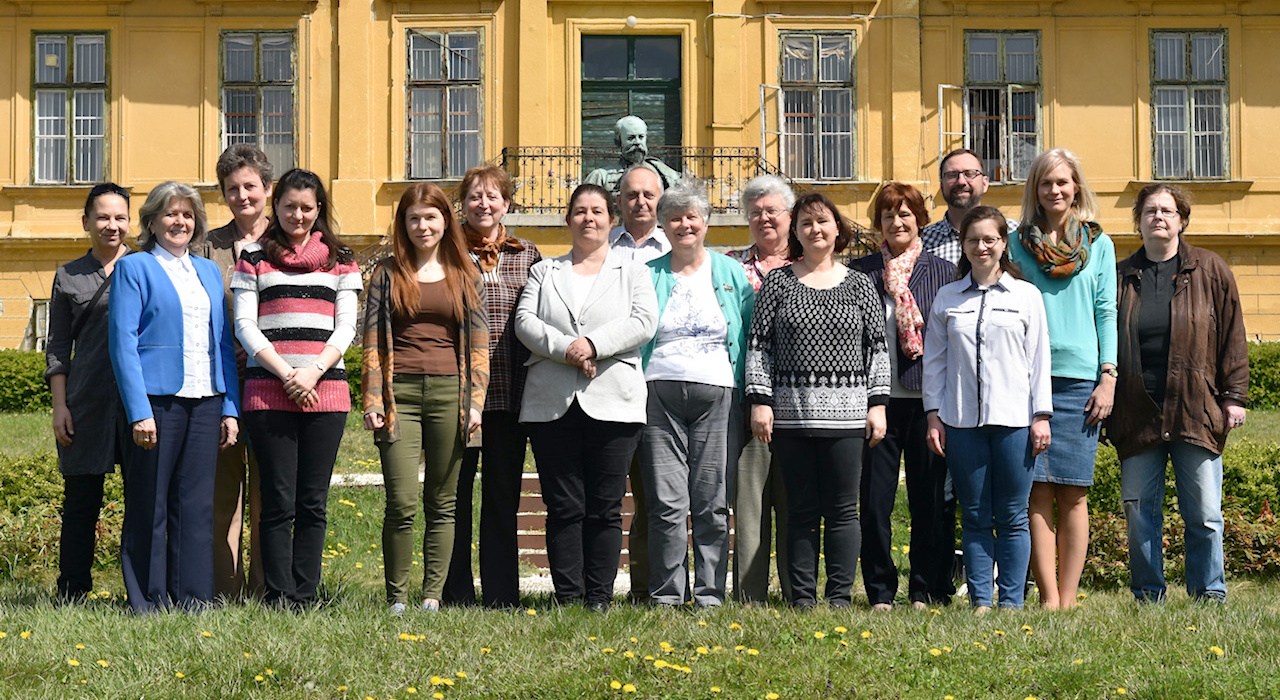Nutrition - Institute of Food Science and Technology
Department of Nutrition Science

Department of Nutrition
History of the Department
The history of the department dates back to the mid-1960s, when we started teaching basic chemistry to students of food thechnology as the Department of Chemistry at the former Higher Technicum of Food Industry. In September 1970, The institution was attached to the University of Horticulture, and our department was tasked with teaching food chemistry, food analysis and nutrition. Accordingly, its name was changed to the Department of Food Chemistry.
Besides the disciplines of food chemistry and food analitics, nutrition science was increasingly emphasized in both education and research. New courses (Nutrition Science, Food Toxicology, Disease Prevention and Therapeutics, Nutritional Allergies, Selected Chapters in Nutritional Science) have been launched in order to establish the basis and broaden the teaching of this discipline. Reflecting this, the name of our department was changed to the Department of Food Chemistry and Nutrition.
In 2009, a joint MSc course was developed with the Faculty of Dietetics at the Semmelweis University. The Master's degree in Nutrition is popular among students with degrees in food engineering, dietetics, biology and medicine.
In 2020, recognizing the dynamically changing student and market needs, we launched a new specialization in BSc of Food Engineering called Nutrition Food Technology. The specialization is the result of the integration of two scientific fields: based on nutritional science, we search for technological solutions for the production of healthy, reformulated foods for the purpose of health promotion and disease prevention.
As a result of the university restructuring in 2021, the number of staff in the department was increased by the addition of colleagues from the Biology Department of the National Agricultural Research and Innovation Cenre. The joinment of the research network has greatly contributed to strengthen the discipline of nutrition science in our department, both in terms of teaching and research. Reflecting this, the name of our department was changed to the Department of Nutrition.
Courses taught
- Food Chemistry I.
- Food Chemistry II.
- Nutrition Science
- Science of Nutrition
- Selected Topics in Nutrition Science
- Food Allergies
- Toxicology
- Food Toxicology
- Physiological relationships of food safety and quality
- Colloid chemistry and rheology
- Physical chemistry
- Separation techniques
- Impact of food preparation on nutrients
Projects
- Investigating the composition and aroma compounds of monofloral honeys, as well as the relationship between chemical properties and plant origin of honeys
- Analysis of the amino acid composition of Hungarian and foreign monofloral honeys and honey specialities
- Comparison of physical and chemical properties (sugar content, moisture content, ash content, acidity, pH, diastase activity, HMF content, colour properties) of Hungarian and foreign monofloral honeys and honey specialities
- Investigation of the macronutrient content, antioxidant capacity, aroma composition and sensory attributes of mono- and polyfloral bee pollen, development of a sensory wheel
- Comparison of the nutritional properties and sensory attributes of biscuits enriched with monofloral bee pollens, ivestigating consumers’ preference for these products
- Instrumental discrimination of bee pollens of different botanical origins using electronic tongue, electronic nose and near infrared spectroscopy
- Qualification of foods based on their biologically active components (amino acids, biogenic amines, aroma compounds)
- Analysis of aroma compounds of foods by using GC-MS-O instrument panel
- Analysis of aroma compounds of pálinkaspirits and liquors, investigation of the relationship between fruit origin and aroma compounds of palinkas, authenticity determination
- Investigation of chromatographable compounds of alcoholic drinks including wines, fruit wines, beers and champagnes
- Investigation of aroma changes in dried fruit
- Examining the changes in fruits and herbs during storage
- Relationship between habitat and composition in native truffle species
- Analysis of volatile compounds and amino acid composition of cultivated mushroom species
- Examination of the volatile components of spices and hedonic goods to explore the relationship between the hedonic value and technology/origin: tea, coffee, cocoa, spice dehydrates, marzipan, etc.
- Development of protein-based dietary supplements
- Expanding the range of value-added and functional foods based on legumes that can be produced sustainably
- Development of functional beverages and snack products made of domestically bred fruits and vegetables, development of their production technology based on biochemical metabolomic studies
- Improving the competitiveness of products with protected designation of origin by establishing rapid DNA-based origin verification methods
- Improving allergen risk assessment strategies for new food proteins
- Investigating the health benefits of bioactive and other components of foods of plant origin

